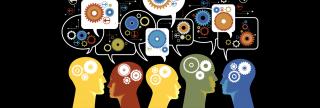UNESCO is launching international consultations aimed at developing a Recommendation on Open Science for adoption by member states in 2021. Its Recommendation will include a common definition, a shared set of values, and proposals for action.
 At the invitation of the Canadian Commission for UNESCO, the attached paper from the UNESCO Chair in Community-Based Research and Social Responsibility in Higher Education in collaboration with the Canadian Commission for UNESCO aims to contribute to the consultation process by answering questions such as:
At the invitation of the Canadian Commission for UNESCO, the attached paper from the UNESCO Chair in Community-Based Research and Social Responsibility in Higher Education in collaboration with the Canadian Commission for UNESCO aims to contribute to the consultation process by answering questions such as:
- Why and how should science be “open”? For and with whom?
- Is it simply a matter of making scientific articles and data fully available to researchers around the world at the time of publication, so they do not miss important results that could contribute to or accelerate their work?
- Could this openness also enable citizens around the world to contribute to science with their capacities and expertise, such as through citizen science or participatory action research projects?
- Does science that is truly open include a plurality of ways of knowing, including those of Indigenous cultures, Global South cultures, and other excluded, marginalized groups in the Global North?
We request that subscribers to CR&DALL contact their National Commission for UNESCO and send a copy of the brief to them calling for them to study it and support the suggestions for textual content to the Recommendation.
Thanks so much,
Budd and Rajesh
Best jordan Sneakers | Patike – Nike Air Jordan, Premium, Retro Klasici, Sneakers , Iicf
Discussion topics:
- Log in to post comments














Latest Comments